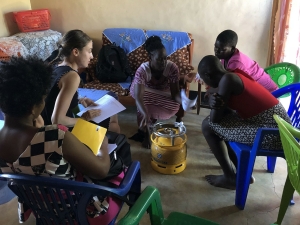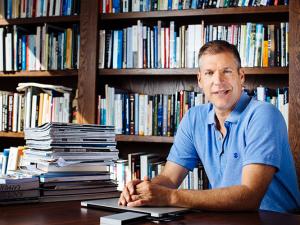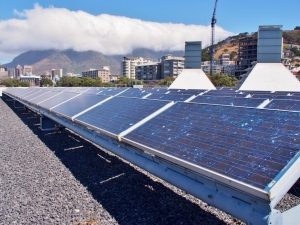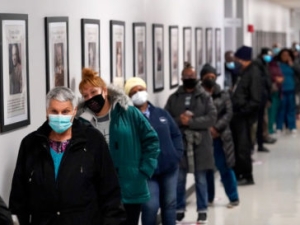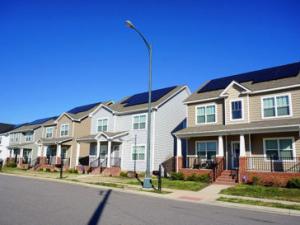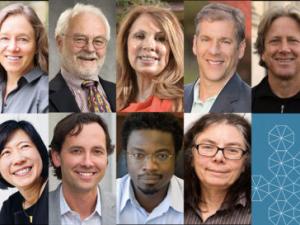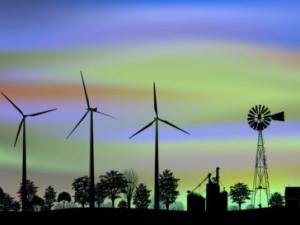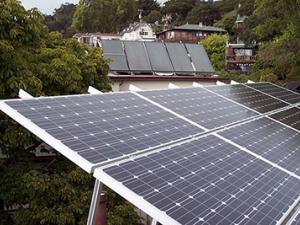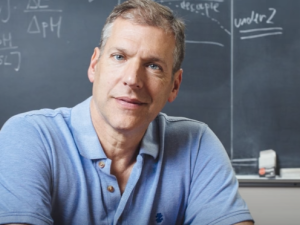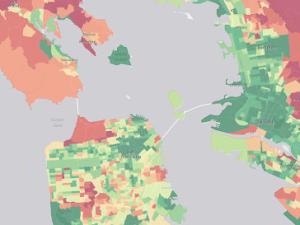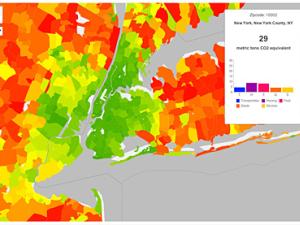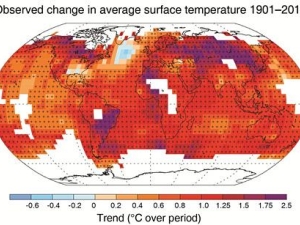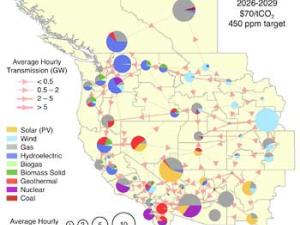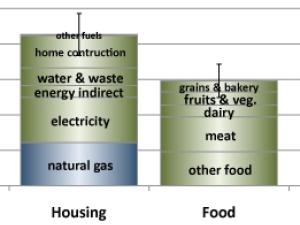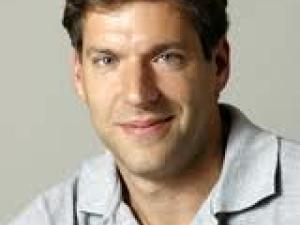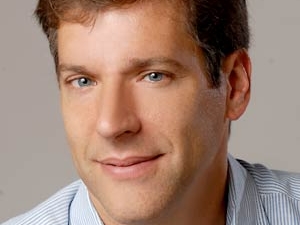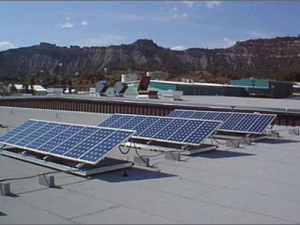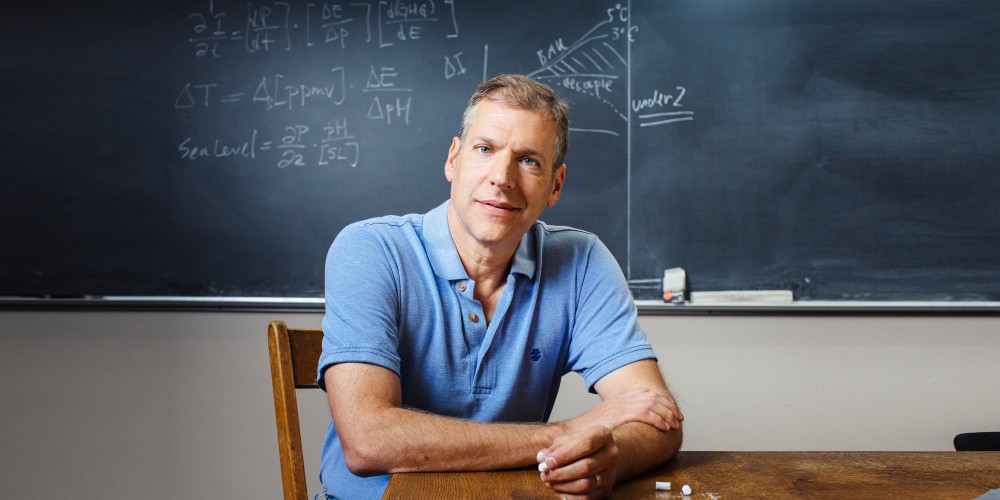

Research Bio
Daniel Kammen is the James and Katherine Lau Distinguished Chair in Sustainability and a Professor of Energy with appointments in the Energy and Resources Group (where he is the Chair), the Goldman School of Public Policy, and the Department of Nuclear Engineering. Kammen is the founding director of the Renewable and Appropriate Energy Laboratory (RAEL). Kammen’s research is focused on energy systems science in the context of decarbonizing the energy systems in the United States/North America, and in a range of field-based programs in Africa, Latin America, southeast Asia, and Europe. He is the author of over 400 publications, over 50 technical reports and over 40 Federal and State testimonies. These are all online at his laboratory website: http://rael.berkeley.edu
Kammen was trained in physics and develops analytic and computational methods derived from a physical science/engineering perspective to inform and engage in analysis of energy futures.
During 2010 – 2011 Kammen served as the first Chief Technical Specialist / Director for Renewable Energy and Energy Efficiency. He now serves as a World Bank Fellow in Energy. In April 2010 Secretary of State Hilary Clinton introduced Kammen as the Energy Fellow / Envoy of the U. S. State Department’s Energy and Climate Partnership for the Americas (ECPA). He resigned his position as Science Envoy in August, 2017 in protest over administration policies on climate and justice.
Kammen’s research and the RAEL and TSRC is based in physical science modeling to inform interdisciplinary sustainability approaches to the systems science of energy. His current research efforts are focused around:
- High-resolution modeling of the integrated energy generation/transmission and distribution system. This modeling platform, SWITCH, is in use and under continuous development for: California; the Western Electricity Coordinating Council of North America; the emerging East African Power Pool; and China.
- Methods in carbon and sustainability assessment and utilization at household to national levels using life-cycle and resource assessment methods. An extensive set of models and geographically specific applications are available at http://www.coolcalifornia.org and http://coolclimate.berkeley.edu.
- Economic and Job Creation Impacts of the Clean Energy Economy, including open-source analytic tools.
- Island Systems as design laboratories and applications of low-carbon development. Specific field efforts are underway in: Nicaragua; East Africa; Sabah (Malaysia); Kosovo; the Caribbean; French Polynesia; Native American / First People’s communities.
- Developing the disciplines of sustainability and energy systems science.
Research Expertise and Interest
public policy, nuclear engineering, energy, resources, risk analysis as applied to global warming, methodological studies of forecasting, hazard assessment, renewable energy technologies, environmental resource management
In the News
As Carbon Offsets, Cookstove Emission Credits Are Greatly Overestimated
Five UC Berkeley-Led Projects Awarded California Climate Action Grants
UC Berkeley Professor to Advise USAID on Sustainable Energy Development
The Transformation of Africa’s Energy Sector
America on edge: Berkeley scholars’ early election thoughts
Berkeley Talks: Using peer pressure to fight climate change
Climate change and COVID-19: Can this crisis shift the paradigm?
Nine faculty elected to American Academy of Arts and Sciences
Advances open door to more aggressive policies to meet climate goals
Who benefits from the solar energy revolution?
Climate video series: Bringing power to the developing world
New interactive map compares carbon footprints of Bay Area neighborhoods
Data on current carbon emissions will help cities meet goals set a Paris climate summit, and show people how they contribute to global warming.
Electricity from biomass with carbon capture could make western U.S. carbon-negative
Biomass conversion to electricity combined with new technologies for capturing and storing carbon, which should become viable within 35 years, could result in a carbon-negative power grid in the Western United States by 2050.
Suburban sprawl cancels carbon-footprint savings of dense urban cores
According to a new study by UC Berkeley researchers, population-dense cities contribute less greenhouse-gas emissions per person than other areas of the country, but these cities’ extensive suburbs essentially wipe out the climate benefits.
Newly released climate change report reinforces need for action
The release today (Friday, Sept. 27) of Assessment Report 5, a new report by the Intergovernmental Panel on Climate Change (IPCC), bolsters the conclusions of its 2007 report that humans are responsible for global warming, and it highlights the need for immediate action to reduce carbon emissions.
Advanced power-grid model finds low-cost, low-carbon future in West
A new study by UC Berkeley researchers state that replacing coal with renewable energy can help reduce greenhouse gas emissions in a least expensive way.
When it comes to carbon footprints, location and lifestyle matter
A UC Berkeley analysis of the carbon footprints of households around the country shows that consumers need different strategies in different cities to reduce their greenhouse gas emissions. An online “carbon calculator” helps consumers decide how to change their lifestyles for the maximum reduction in their footprints.
Investments in rural energy efficiency, renewable energy reduce poverty, greenhouse gas emissions
A clean-energy initiative in rural Nicaragua shows that developing nations can take cost-effective steps to reduce carbon emissions while helping the rural poor to reduce their energy expenses, according to researchers at UC Berkeley. Their report inScience analyzes simple steps taken by Nicaraguan government and the nonprofit blueEnergy on that country's Mosquito Coast.
Dan Kammen Appointed to World Bank
Energy-policy expert Dan Kammen has been appointed to a new position at the World Bank, where he will help distribute billions of dollars to developing countries to improve energy efficiency and foster low-carbon, renewable sources of energy.
Secretary Clinton appoints Dan Kammen first clean energy fellow to Western Hemisphere
UC Berkeley Professor Dan Kammen has been appointed a special State Department envoy to our neighbors in the Western Hemisphere to encourage cooperation in reducing greenhouse gas emissions and promoting sustainable energy.
Error in climate treaties could lead to more deforestation
A team of 13 prominent scientists and land-use experts has identified an important but fixable error in legal accounting rules for bioenergy that could, if uncorrected, undermine efforts to reduce greenhouse gases by encouraging deforestation.
Cheaper materials could be key to low-cost solar cells
Unconventional solar cell materials that are as abundant but much less costly than silicon and other semiconductors in use today could substantially reduce the cost of solar photovoltaics, according to a new study from the Energy and Resources Group and the Department of Chemistry at UC Berkeley and Lawrence Berkeley National Laboratory.
Featured in the Media
Goldman's Barbara Haya, co-author and founder of the Berkeley Carbon Trading Project, said the credits were trying to "convince consumers they can continue consuming, driving and flying without impacting the planet, which is simply not true."

